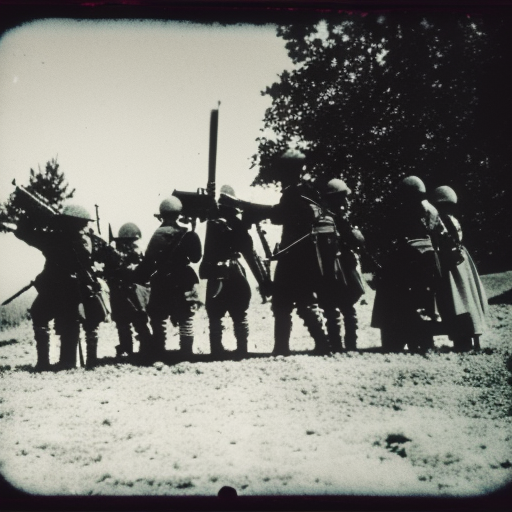Summary:
The German Peasants’ War was a widespread revolt that took place in the Holy Roman Empire between 1524 and 1526. It was sparked by a combination of social, economic, and religious grievances among the rural population. The peasants demanded an end to serfdom, fairer taxation, and religious freedom. The revolt was initially successful, but it was eventually crushed by the ruling elites, resulting in widespread repression and the reaffirmation of feudal authority.
Causes of the German Peasants’ War:
The German Peasants’ War was fueled by a range of factors. Economic pressures, such as rising rents and taxes, combined with a series of bad harvests, left the peasantry in a state of desperation. Additionally, the spread of Martin Luther’s ideas during the Protestant Reformation provided a religious justification for the peasants’ grievances. Luther himself initially sympathized with the peasants’ cause but later condemned their violent methods.
Course of the Revolt:
The revolt began in 1524 in the region of Swabia and quickly spread throughout the Holy Roman Empire. Peasant armies, often led by charismatic leaders, emerged and took control of several towns and castles. The rebels issued a series of demands known as the Twelve Articles, which called for the abolition of serfdom, fairer taxation, and the right to choose their own pastors. At its height, the revolt involved hundreds of thousands of peasants.
Response from the Authorities:
The ruling elites, both secular and religious, were alarmed by the peasant uprising. They feared the loss of their privileges and the potential spread of radical ideas. As a result, they formed a united front against the rebels. The authorities raised armies and called upon the nobility to suppress the revolt. The princes and nobles, who were often at odds with each other, put aside their differences to crush the rebellion.
Suppression of the Revolt:
The peasant armies were no match for the well-trained and well-equipped forces of the ruling elites. The rebels lacked coordination and were often divided along regional and religious lines. The authorities employed brutal tactics to suppress the revolt, including mass executions and the burning of rebel villages. The decisive battle took place at Frankenhausen in 1525, where the peasant army was defeated. The revolt gradually fizzled out, and the remaining rebel leaders were captured and executed.
Aftermath and Legacy:
The defeat of the German Peasants’ War had far-reaching consequences. The ruling elites reasserted their authority and reimposed feudal control over the peasantry. The revolt also led to a hardening of attitudes towards the peasantry, with stricter laws and harsher punishments being imposed. The Protestant reformers, who had initially sympathized with the peasants, distanced themselves from the revolt, fearing that it would undermine their cause. The German Peasants’ War highlighted the deep social and economic inequalities of the time and served as a reminder of the power dynamics between the ruling elites and the rural population.
In conclusion, the German Peasants’ War was a significant uprising that occurred during the Protestant Reformation. It was driven by economic hardships and religious grievances among the rural population. Although the revolt initially achieved some success, it was ultimately crushed by the ruling elites. The aftermath of the revolt resulted in increased repression and the reaffirmation of feudal authority. The German Peasants’ War serves as a reminder of the social and economic tensions of the time and the challenges faced by the peasantry in their struggle for justice and freedom.












